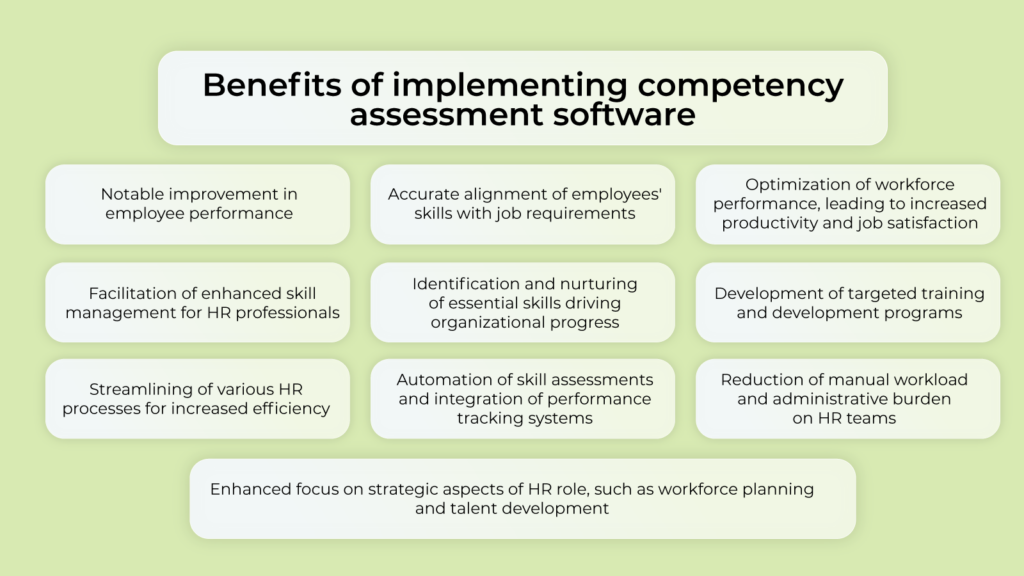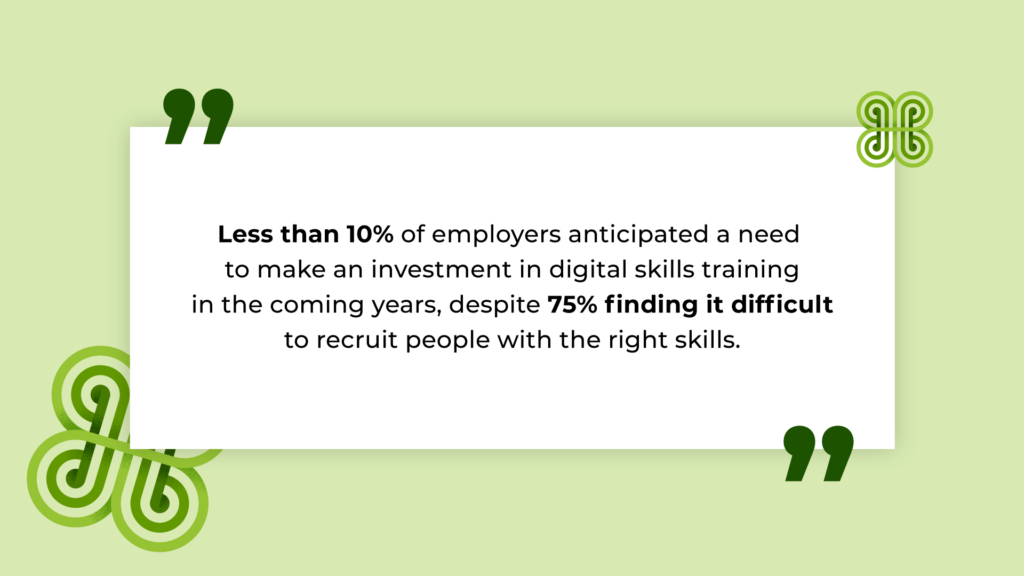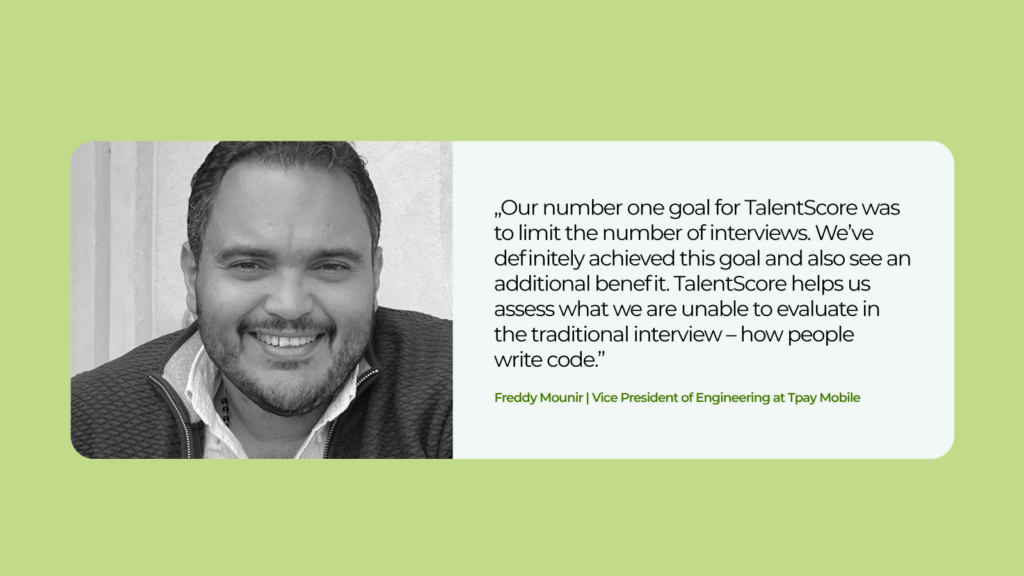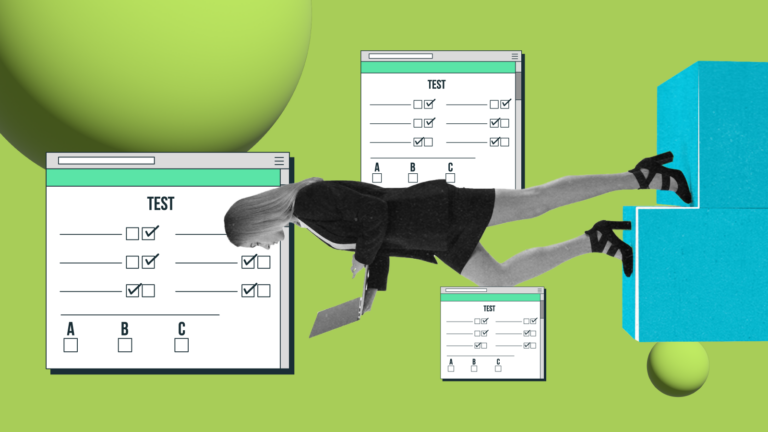
A comprehensive guide to competency assessment software

Finding the right talent and ensuring they have the skills to excel is a challenge every organization faces. But what if you had a tool to simplify this process, identify skill gaps, and boost employee performance? That’s where competency assessment software comes in. This article unveils the best platforms in 2024, guiding you toward a future-proof workforce.
Competency assessment is a systematic process of evaluating an individual’s capabilities against predefined organizational standards or job requirements. Instead of focusing solely on theoretical knowledge, it emphasizes the demonstration of practical skills, knowledge, and behaviors needed to perform a specific role effectively.
Think of it as evaluating an employee’s “real-world” readiness rather than just their qualifications on paper. This evaluation can take various forms, including:
- Knowledge tests: Assessing theoretical understanding through quizzes or exams.
- Skills assessments: Evaluating practical abilities through simulations or hands-on tasks.
- Behavioral interviews: Understanding behavioral patterns and their alignment with company values.
- 360-degree feedback: Gathering insights from peers, managers, and subordinates to gain a holistic perspective.
Key features of competency assessment software
The importance of competency assessment in workplace
Characterized by rapid technological advancements and evolving job roles, competency assessment has become more critical than ever before. Let’s explore the key reasons why:
- Identifying skill gaps: Competency assessments provide a clear picture of the existing skills within your workforce and highlight areas where development is needed. This allows for targeted training programs to bridge those gaps and enhance overall productivity.
- Enhancing recruitment and selection: By incorporating competency-based assessments into the hiring process, organizations can objectively evaluate candidates’ suitability for specific roles. This ensures that new hires possess the necessary capabilities to hit the ground running.
- Facilitating employee development: Competency assessments serve as a roadmap for employees’ professional growth. By understanding their strengths and weaknesses, individuals can focus on developing specific areas and chart a clear path for career advancement.
- Boosting employee performance and engagement: When employees have a clear understanding of the competencies required for their roles and are equipped with the tools to develop them, they are more likely to be engaged and perform at their best. This leads to improved productivity, higher morale, and reduced turnover.
Competency assessment software simplifies and streamlines this entire process. Instead of relying on manual evaluations, which can be time-consuming and prone to bias, these platforms automate tasks, provide data-driven insights, and enable organizations to make informed decisions regarding talent management.
Benefits of implementing competency assessment software
The implementation of competency assessment software brings forth a multitude of benefits that significantly enhance organizational efficiency and effectiveness. A primary advantage is the notable improvement in employee performance.
This enhancement stems from the software’s ability to accurately align employees’ skills with specific job requirements.
By ensuring a precise match between an individual’s capabilities and their role’s demands, organizations can optimize their workforce performance, leading to increased productivity and job satisfaction.
Another significant benefit is the facilitation of enhanced skill management. The software provides HR professionals with the tools to identify key skills and competencies within their workforce.
This identification process is crucial in recognizing and nurturing the essential skills that drive the organization forward.

By having a clear understanding of the skill landscape within the company, HR can develop targeted training and development programs, fostering a culture of continuous learning and skill advancement.
Additionally, competency assessment software streamlines various HR processes, making them more efficient and effective.
The automation of skill assessments and the integration of performance tracking systems reduce manual workload and administrative burden on HR teams.
This efficiency allows HR professionals to focus on more strategic aspects of their role, such as workforce planning and talent development, rather than being bogged down by time-consuming administrative tasks.
Overall, the implementation of this software represents a strategic investment in optimizing human resource management and elevating organizational performance.
Challenges in competency assessment
Despite the numerous benefits, the adoption of competency assessment software is not without its challenges.
A significant hurdle is catering to the needs of a diverse workforce. In today’s global business environment, organizations often have employees from varied backgrounds with different skill sets and learning styles.
Tailoring the software to accommodate this diversity and ensure it is inclusive and relevant for all employees can be a complex task.
Integration with existing systems is another challenge. Organizations typically use a variety of software tools and platforms for various functions.
Ensuring that the competency assessment software seamlessly integrates with these existing systems is crucial for maintaining workflow continuity and data consistency. This integration must be handled skillfully to avoid disruptions in day-to-day operations and to ensure that data flows smoothly between systems.
Data security and privacy are also paramount concerns. With the increasing amount of personal and sensitive data being processed by these systems, ensuring the security and privacy of this information is crucial.
Organizations must ensure that the software adheres to data protection regulations and standards.
Implementing robust security measures to safeguard against data breaches and unauthorized access is essential to maintain trust and compliance.
Navigating these challenges requires careful planning, a deep understanding of the organization’s unique needs, and a strategic approach to software implementation and integration.
How to choose the right competency assessment software
Selecting the most suitable competency assessment software necessitates a thoughtful and thorough approach, encompassing several key aspects.
Firstly, understanding and defining the specific needs of the organization is paramount. This process involves identifying the unique challenges and objectives of the organization, such as the nature of the workforce, the specific competencies that need to be assessed, and the overall goals of the competency assessment program.
By clarifying these needs, organizations can better align their choice of software with their strategic objectives.
Evaluating the capabilities of the software is another critical step.
This evaluation should focus on whether the software offers the features and functionalities that meet the organization’s identified needs.
Important aspects to consider include the robustness of the assessment tools, the flexibility and customization options available, the software’s ability to integrate with existing HR systems, and its scalability to accommodate future growth and changes within the organization.

Lastly, ensuring that the software’s interface is user-friendly is crucial for successful implementation and adoption.
The interface should be intuitive and easy to navigate, allowing both HR professionals and employees to use the software effectively with minimal training.
A user-friendly interface enhances the user experience, encourages consistent usage, and contributes to more accurate and efficient competency assessments.
In summary, choosing the right competency assessment software involves a balanced consideration of organizational needs, a thorough evaluation of the software’s capabilities, and an emphasis on user-friendliness, ensuring that the selected コンピテンシー管理ソフトウェア not only meets the technical requirements but also aligns with the people and culture of the organization.
Key features to look for in competency assessment software
When it comes to staying ahead in today’s rapidly evolving digital landscape, cultivating a highly skilled workforce is paramount. Organizations are increasingly turning to competency assessment software to evaluate and enhance the capabilities of their employees. Let’s delve into the essential features that make such software invaluable for talent optimization.
Gap analysis and skill verification
Effective competency assessment software should excel in identifying skill gaps within a workforce. Look for solutions like デブスキラー タレント・ブースト, which utilizes advanced skills ontologies to pinpoint areas for improvement. By mapping over 3,000 digital and IT skills, this type of software helps bridge the gap between existing competencies and organizational needs. Furthermore, robust competency assessment software should facilitate accurate skill verification. DevSkiller TalentScore, for instance, achieves this through real-world programming assignments, ensuring that assessments reflect practical, job-relevant abilities.
Curated learning plans and development tracking
Bridging the skill gap requires a commitment to continuous learning and development. Leading competency assessment software goes beyond mere evaluation by providing curated learning plans tailored to individual needs. These plans should offer targeted resources and personalized recommendations to address identified skill deficiencies. Moreover, the software should incorporate robust development tracking mechanisms, enabling employees and managers to monitor progress, set goals, and celebrate achievements along the learning journey.
Automation and workforce intelligence capabilities
Opt for competency assessment software that streamlines the entire assessment process, from test creation and delivery to automated grading and reporting. This frees up valuable time for HR professionals and managers to focus on strategic talent management initiatives. Moreover, the software’s analytics capabilities should provide insights into workforce trends, skill gaps, and training effectiveness, empowering data-driven decision-making.
Personalized feedback and employee engagement tools
Finally, competency assessment software should foster a culture of continuous feedback and employee engagement. Look for features that facilitate personalized feedback delivery, allowing employees to gain insights into their strengths and weaknesses. Integrating the software with communication platforms can enable ongoing dialogue between employees, managers, and mentors, promoting a growth mindset and driving continuous improvement.
Case studies: Success stories of competency assessment software
TPAY Mobile, faced with the challenge of building IT teams amidst local talent scarcity, revolutionized their hiring process using デブスキラー competency assessment software. Initially, the company struggled with a high volume of applications and low application quality, leading to interview overload.
This created unnecessary stress for interviewers, expensive engineering hours spent on interviewing, and productivity bottlenecks.
Implementing DevSkiler dramatically changed their approach. The software’s automated technical screening allowed TPAY Mobile to efficiently filter through a large pool of candidates.
Out of over 500 candidates interviewed, only 20 were hired, demonstrating the tool’s effectiveness in identifying high-quality candidates. The goal was to identify skill gaps and reduce interviews with low-quality candidates, and this was successfully achieved.
Freddy Mounir, Platform Engineering Manager at TPAY Mobile, highlighted the benefits of assessment software in assessing coding skills – a crucial aspect often missed in traditional interviews.
The results were significant: out of 533 candidates who took the DevSkiller assessment platform, 44 passed, and 20 were hired. This process resulted in 8% of all applications passing the entire assessment process and 1.5% being hired.
Before implementing DevSkiller, TPAY Mobile relied on manual technical interviews and assignments.
The introduction of DevSkiller’s automated technical assessment transformed their process, focusing interviews on top performers and eliminating bottlenecks.
This shift not only improved interviewer satisfaction by preventing them from wasting time on unsuitable candidates but also enhanced the quality of the candidates being interviewed.
Additionally, DevSkiller provided TPAY Mobile with clear performance indicators and advanced geographical insights about the Egyptian market.

It helped them identify candidates likely to succeed, aligning DevSkiller results with other factors like education and background.
The definition of an ideal hire at TPAY Mobile evolved, focusing on intelligent individuals demonstrated through coding tasks and analytical thinking.
In summary, TPAY Mobile’s case study with DevSkiller illustrates the powerful impact of automated technical assessment in hiring, particularly in challenging markets with talent scarcity.
The tool not only streamlined the hiring process but also significantly raised the quality of candidates, contributing to the successful build-up of their champion IT teams.
Future trends in competency assessment technology
The future trajectory of competency assessment technology is indeed thrilling, particularly with the advent and integration of Artificial Intelligence (AI) and machine learning.
These advanced technologies are set to revolutionize the field by introducing more sophisticated features, such as predictive analytics in skill management.
AI and machine learning enable the software to not just assess current competencies but also to predict future skill trends and requirements.

This predictive capability allows organizations to be proactive rather than reactive in their workforce planning. By analyzing patterns and trends in data, these systems can forecast which skills will become more important in the future, helping organizations to prepare and train their workforce accordingly.
Moreover, AI-driven competency assessment tools can provide personalized learning and development recommendations for each employee, based on their unique skill set and career trajectory.
This individualized approach enhances employee engagement and efficiency in skill development.
The integration of AI and machine learning into competency assessment tools represents a significant leap forward in how organizations manage and develop their human capital.
As these technologies continue to evolve, they promise to bring even greater insights and efficiencies to the field of human resource management measure employee performance and organizational development.
結論
Competency assessment software has transcended being merely a fleeting trend; it has become an indispensable component of contemporary human resource management. This technology plays a pivotal role in helping organizations enhance their human capital and competency management system, a crucial aspect in today’s competitive business landscape.
The benefits of such software are substantial. It facilitates more accurate alignment of employee skills with job requirements, optimizes performance through enhanced skill management, and streamlines HR processes, thus driving overall organizational efficiency and effectiveness.
These advantages underscore the software’s importance in not only managing but also strategically developing an organization’s workforce.
However, alongside these benefits come challenges that need to be navigated.
These include adapting the software to suit a diverse workforce, ensuring seamless integration with existing systems, and maintaining stringent data security and privacy standards.
Addressing these challenges is critical to fully leveraging the potential of competency assessment tools.
Looking ahead, the future of competency assessment software is marked by exciting prospects, particularly with the integration of advanced technologies like AI and machine learning.
These innovations promise to add new dimensions to talent management, such as predictive analytics for skill development and individualized learning pathways.
よくあるご質問
What is competency assessment software?
Competency assessment software is a tool used by organizations to evaluate and manage the skills and competencies of their employees.
How does competency assessment software benefit organizations?
It improves employee performance, enhances skill management, and streamlines HR processes.
What are the challenges of implementing this software?
Challenges include catering to a diverse workforce, integration with existing systems, and ensuring data security.
What should I look for in competency assessment software?
Look for features like automated assessments, performance tracking, and customizable frameworks.
How is AI changing competency assessment software?
AI is introducing advanced features like predictive analytics, enhancing the software’s effectiveness in skill management.




